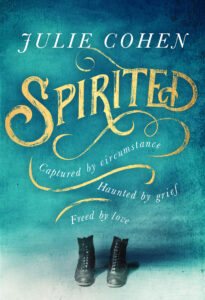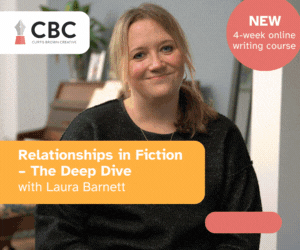Why We Should Take Romantic Fiction Seriously By Julie Cohen
15 February 2021
As it’s Romance Reading Month we’re featuring different blogs on writing romance. This week is #RNADiverseLoveWeek so this article from Julie Cohen is very apt. Thank you, Julie.

Love matters. Romantic relationships are some of the most important and influential relationships any of us will have in our lives. They’re the basis of how and where we live, whether we have children, the choices we make—even how long we live. Romantic novels focus on those experiences, in all their magic, wonder and pain. And romantic fiction is a billion-pound worldwide industry, enjoyed by millions of readers and selling millions of books. In 2017 a romantic novel was purchased every two seconds in the UK.
But that’s not the only reason why we should take romantic fiction seriously.
Romantic novels are feminist. People who have never read a romantic novel often explain to me that everybody knows that romance novels are all about swooning women who have to be rescued by big strong men. ‘That’s funny,’ I’d say, ‘because my own novels are about strong, intelligent protagonists who rescue themselves, and so are all the romantic novels I like to read.’
People who have never read a romantic novel also like to explain to me that these books give women an unrealistic expectation of real-life relationships and therefore they can’t be feminist. What’s more feminist than writing about a world that features mature, fulfilling relationships between people—all people, of every gender, race, religion, ability and sexuality? Of course, the underlying argument that women are too stupid to tell the difference between fantasy and reality is misogyny, pure and simple.
It’s true that romantic novels portray many different views of gender roles. Some novels, like some authors, are quite conservative; others are progressive and even subversive. Some reinforce a hierarchical structure in relationships; others are more egalitarian. You can find all of these varied points of view in romantic novels. Romantic novels aren’t throwbacks to some mythical golden age of patriarchy; they’re as diverse and inclusive as the authors who write them and the readers who enjoy them.
But aside from the specific portrayals of gender issues in individual books, the fact is that romantic novels are overwhelmingly written by women, published by women, and bought and read by women. The largest part of them centre the female experience and portray it as complex, rich and aspirational. They promote the female gaze, whereas so much of our mainstream media promotes the male gaze.
That’s feminist in itself.
I say ‘women’ and ‘female’, but romantic novels are also written by and about nonbinary, genderqueer and trans people, and cisgender men, both straight and queer. These novels can challenge the patriarchy, too. Romantic novels represent and celebrate the spectrum of romantic experience. Writing genre romance that doesn’t fit heteronormative and/or cisgendered patterns—and which embraces the real world’s diversity of race, religion, ethnic background, ability—is a political act. It says: All loving and consenting adult relationships are valid. They’re important. They’re part of the human experience.
Romantic novels are one of the very few types of fiction where authors write well, and with pleasure, about enthusiastic consensual sex. In a romantic novel, sex is a healthy part of a good relationship (or at least it becomes a healthy part of a good relationship, even if that’s behind closed doors). In a romantic novel, characters aren’t ashamed of their desires, and everyone involved has a good time. That’s something to take seriously in the era of #MeToo.
But for me, the most important reason why we should take romantic novels seriously is a very simple one: escapist fiction saves lives. I cherish a letter from a reader who read my book in hospital between her diagnosis and surgery for terminal cancer. ‘Thank you,’ she wrote, ‘from the bottom of my heart for the enjoyment you gave me at a very horrible time.’
Every author I know has received at least one letter like this, from a reader who has escaped with one of our novels, or who has seen themselves represented in the pages and gained strength from it.
In our lowest times, in a world increasingly full of hatred, during a global pandemic, people need hope. We need stories about love and a better world: stories about strong people overcoming adversity and finding community, love, and a happy ever after. That’s why romantic fiction is, and always will be, serious stuff.
 JULIE COHEN is an award-winning and Sunday Times bestselling author. She is a Vice President of the Romantic Novelists’ Association, a founding member of the RNA Rainbow LGTBQ+ Chapter, and the winner of the 2020 Inclusion Award. Twitter: @julie_cohen Instagram: @juliecohenauthor
JULIE COHEN is an award-winning and Sunday Times bestselling author. She is a Vice President of the Romantic Novelists’ Association, a founding member of the RNA Rainbow LGTBQ+ Chapter, and the winner of the 2020 Inclusion Award. Twitter: @julie_cohen Instagram: @juliecohenauthor




